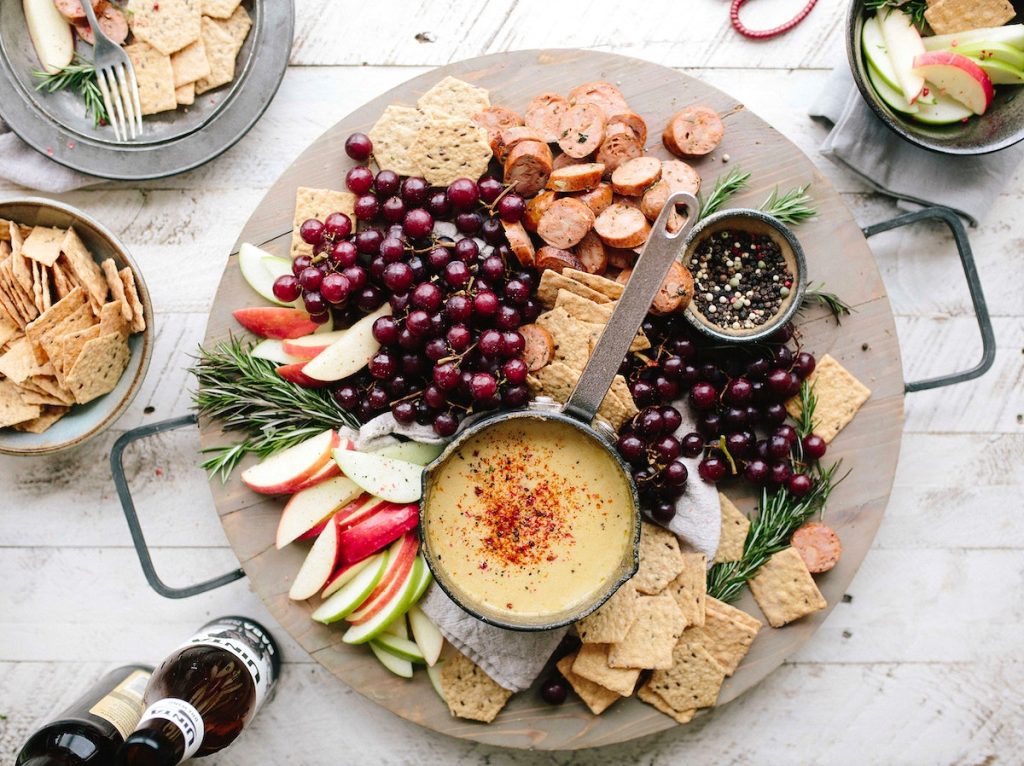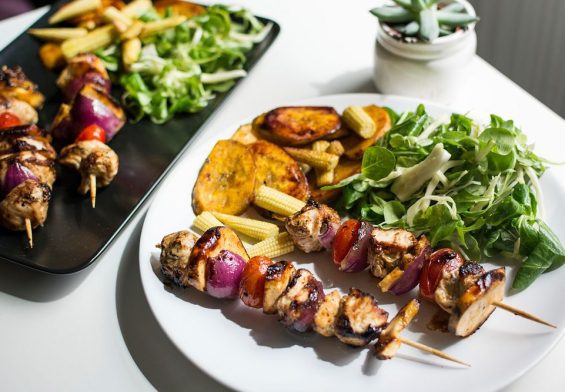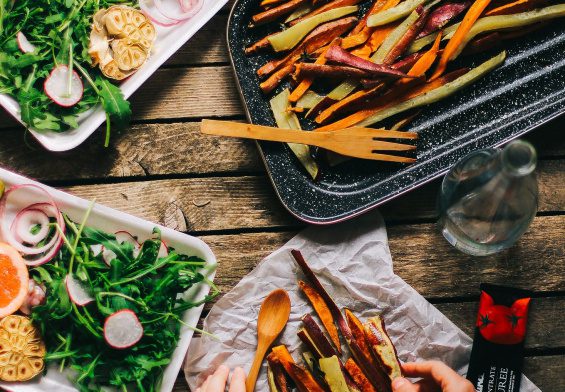
Table of Contents
Intro: How to Create a Healthy Meal Plan for Muscle Gain?
How to Create a Healthy Meal Plan for Muscle Gain: Some of the recommended foods include calorie-density density nutrient-dense foods, snacks should be portioned differently and in advance to cover the week. Some foods that are easy, healthy to prepare, and can be taken in the morning include Oats which are soaked in water or milk for the whole night, and chia pudding.
O, drop chia seeds and oil in two tablespoons and pour half a cup of unsweetened almond milk, a few drops of vanilla extract, and your desired sweetener then place the mixture in the fridge overnight and take it in the morning with berries. It can also be presented as a very nutritious product, which is rich in fiber and can perfectly replace the traditional breakfast.

More info on How to Create a Healthy Meal Plan for Muscle Gain?
Divulging on the theme of lunch, a healthy and satisfying yet delicious dish is a quinoa and vegetable salad. Finally mix in cherry tomatoes, cucumber, bell pepper, red onion, and crumble in the feta cheese to the cooked quinoa. Drizzle dressing generously over the tossed salad and sprinkle with olive oil and lemon juice then season with salt and pepper. It is a protein-rich salad, and it contains a lot of fiber hence making one feel fuller and active when taking it.
Dinner can be even an easy one but yummy like baked lemon garlic chicken with broccoli. Arrange the baking dish with skinless chicken breasts and broccoli florets, then drizzle olive oil and lemon juice on top, sprinkle minced garlic, salt, and black pepper, and finally, bake it until the chicken turns out so tender, and the broccoli is slightly browned on the edges. This dish contains rich protein food from broccoli and other important nutrients that are important to the body.
For snacks, I suggest Greek yogurt with honey and nuts as well as carrots and hummus because they’re both packed with protein and fiber respectively. These snacks offer the body the necessary energy boost throughout the day to curb instances of binge eating during a meal.

Conclusion: How to Create a Healthy Meal Plan for Muscle Gain?
Known ways that make meal prep effective include cooking ingredients such as quinoa, cooked chicken, and roasted vegetables in large portions at the beginning of the week. Portion control can best be managed by using small uniform plates so that servings are controlled and meals portioned appropriately.
Meals are exciting and enjoyable if there are different ingredients and flavors to achieve the desired combination. Also important is ensuring that you take a lot of water to reduce weight since it is very helpful in flushing out toxins from the body. Following these tips, a good meal plan becomes manageable and enjoyable, which contributes to steady progress toward your obesity goals and better health in general.

FAQ’s on How to Create a Healthy Meal Plan for Muscle Gain?
- What should a healthy meal plan for muscle gain include?
- A healthy meal plan for muscle gain should include lean proteins, complex carbohydrates, healthy fats, and plenty of fruits and vegetables.
- How important is protein in a muscle-building diet?
- Protein is essential as it provides the building blocks (amino acids) necessary for muscle repair and growth.
- What are good sources of lean protein for muscle growth?
- Lean protein sources include chicken breast, turkey, lean beef, fish, tofu, lentils, and Greek yogurt.
- Do I need to eat more calories to build muscle?
- Yes, to build muscle, you generally need to consume more calories than you burn (caloric surplus), combined with resistance training.
- Should I count macros (macronutrients) in my meal plan for muscle gain?
- Yes, tracking macros—protein, carbohydrates, and fats—helps ensure you’re getting the right balance for muscle growth.
- How much protein should I eat per day to build muscle?
- A general guideline is around 1.2 to 2.2 grams of protein per kilogram of body weight per day, depending on your activity level and goals.
- What role do carbohydrates play in a muscle-building meal plan?
- Carbohydrates provide energy for workouts and help replenish glycogen stores in muscles, aiding recovery and growth.
- Can fats be beneficial in a muscle-building diet?
- Yes, healthy fats like avocados, nuts, seeds, and olive oil support hormone production and overall health, which is crucial for muscle growth.
- How should I structure my meals throughout the day for muscle gain?
- Aim to eat 4-6 smaller meals or snacks evenly spaced throughout the day to maintain a steady supply of nutrients and energy.
- What should I eat before a workout to support muscle gain?
- A meal or snack containing carbohydrates and some protein 1-3 hours before exercise can fuel your workout and support muscle recovery.
- Is it necessary to eat after a workout for muscle gain?
- Yes, consuming a meal or snack with protein and carbohydrates within 1-2 hours post-workout helps repair and build muscles.
- How can meal timing impact muscle growth?
- Properly timed meals around workouts can optimize nutrient delivery and promote muscle protein synthesis.
- Are there specific foods I should avoid in a muscle-building meal plan?
- Limit processed foods, sugary snacks, and excessive saturated fats, as they can hinder progress and overall health.
- Can I drink protein shakes as part of my muscle-building meal plan?
- Yes, protein shakes can be convenient for meeting your protein needs, especially post-workout or when whole food sources are unavailable.
- Should I drink water or other beverages while following a muscle-building meal plan?
- Staying hydrated with water is essential for overall health and muscle function. Limit sugary drinks and alcohol.
- Can supplements enhance muscle growth?
- Some supplements like whey protein, creatine, and branched-chain amino acids (BCAAs) can support muscle growth when used alongside a balanced diet and exercise.
- How can I adapt my meal plan if I have dietary restrictions (e.g., vegetarian, vegan)?
- Include plant-based sources of protein like beans, lentils, quinoa, and tofu. Ensure adequate intake of essential nutrients through varied plant foods.
- Is it beneficial to plan meals ahead of time for muscle gain?
- Yes, meal prepping ensures you have nutritious meals readily available, making it easier to stick to your muscle-building goals.
- What role do micronutrients (vitamins and minerals) play in muscle gain?
- Micronutrients support overall health and muscle function. Eating a variety of fruits, vegetables, and whole grains helps ensure adequate intake.
- How can I maintain a balanced diet while focusing on muscle gain?
- Balance your meals with a variety of nutrient-dense foods, including lean proteins, whole grains, healthy fats, and plenty of fruits and vegetables.
- What should I do if I’m not seeing results from my muscle-building meal plan?
- Evaluate your calorie intake, adjust macros, ensure consistency in training, and consider consulting a nutritionist or trainer for personalized advice.
- Can I indulge in occasional treats while following a muscle-building meal plan?
- Occasional treats are okay in moderation. Focus on nutrient-dense foods most of the time but allow yourself small indulgences to maintain balance.
- How long does it typically take to see noticeable muscle gain with a proper meal plan?
- Results vary based on individual factors like genetics, consistency, and training intensity. Generally, visible changes can be seen in a few weeks to months.
- What are common mistakes people make when trying to build muscle through diet?
- Some common mistakes include not eating enough protein, neglecting healthy fats, skipping meals, and not adjusting nutrition to match training intensity.
- How can I adjust my meal plan as I progress in my muscle-building journey?
- Regularly assess your progress, adjust calorie intake and macros as needed, and incorporate new foods or recipes to prevent monotony and support goals.
- Should I consult a nutritionist or dietitian when creating a muscle-building meal plan?
- Consulting a professional can provide personalized guidance, especially if you have specific dietary needs, health concerns, or performance goals.
- Can intermittent fasting be compatible with a muscle-building diet?
- Yes, but timing meals strategically within the fasting window and prioritizing nutrient-dense foods during eating periods is crucial for muscle gain.
- How can I stay motivated to stick to my muscle-building meal plan?
- Set realistic goals, track progress, find enjoyment in meal preparation, and surround yourself with supportive peers or communities.
- What are some signs that my meal plan for muscle gain might need adjustment?
- Signs include lack of energy, plateauing in muscle growth, feeling excessively hungry or full, and changes in performance during workouts.
- Are there specific foods or nutrients that aid in muscle recovery?
- Foods rich in antioxidants, omega-3 fatty acids, and quality protein can support muscle recovery. Examples include salmon, berries, and Greek yogurt.
Also visit:-



